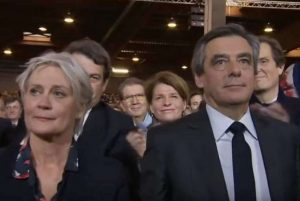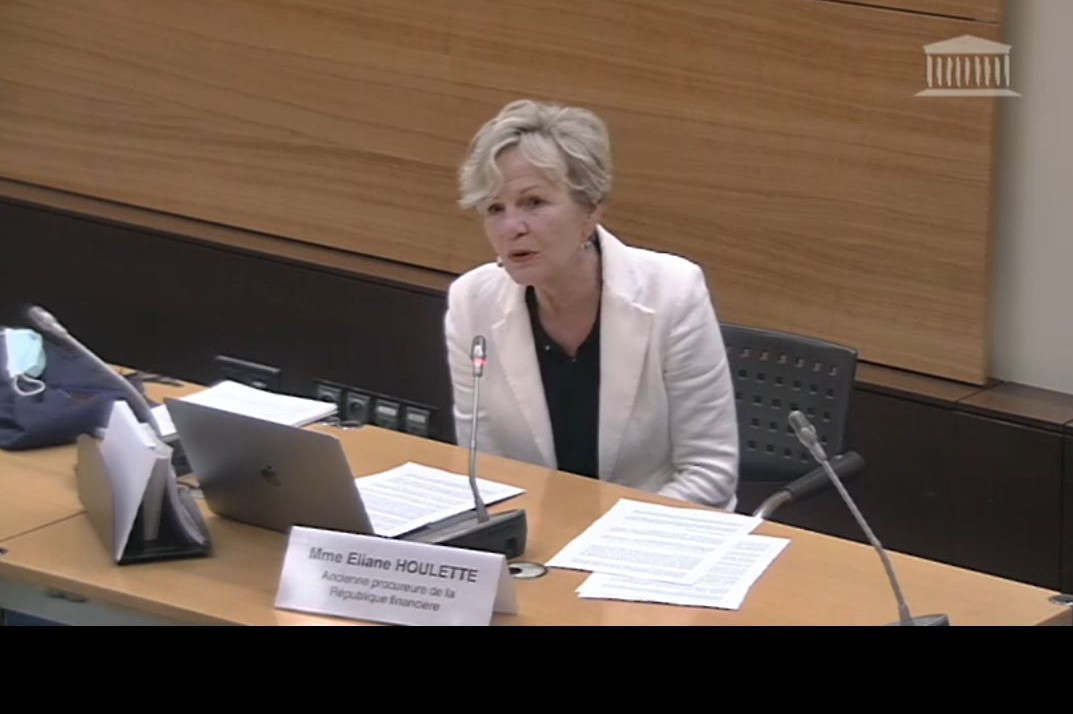With eight days to go before the Paris Criminal Court on 29 June 2020, we learn that justice would have been manipulated. By whom? For what? Back to a hand-sewn manipulation.
Public opinion had practically forgotten this strange political-legal-media affair. Until the trial, in March 2020, of former Prime Minister and former presidential candidate François Fillon and his wife Penelope. The former Prime Minister was prosecuted for “embezzlement of public funds and concealment, abuse of company assets and failure to comply with the reporting obligations of the High Authority for Transparency in Public Life. “His wife was charged with “complicity and concealment of misappropriation of public funds and abuse of company assets” for alleged fictitious jobs. A third defendant, Marc Joulaud, mayor of Sablé-sur-Sarthe (a candidate for his own re-election), appeared in court on charges of embezzlement of public funds. The trial ended on 11 March and the Paris Criminal Court is expected to deliberate on 29 June 2020.
Who? Why?
Three years after the revelation of the facts, the judgment of the Paris court, whatever it was, would have gone almost unnoticed. It would have been the subject of a small newspaper article, if the former prosecutor of the National Financial Prosecutor’s Office (PNF) had not made a disturbing revelation. On 10 June, Eliane Houlette, who was heard in the National Assembly by the commission of enquiry into obstacles to the independence of the judiciary, referred to the “pressure” to which she was subjected in the Fillon case. From whom? From the public prosecutor’s office. That is to say, from the political authorities. The Keeper of the Seals at the time was Jean-Jacques Urvoas and the President of the Republic, François Hollande.
The former senior magistrate explained to the deputies that the pressure was expressed in terms of “information feedback” and this “at a sustained pace”. She evoked a “very close control”, a “very heavy pressure” with “requests for rapid transmission” on the acts of investigation or hearings, requests “of a bewildering degree of precision”. »
It is as a result of this “pressure” that it would have opened a judicial inquiry more quickly than expected.

If that’s true, it’s outrageous. But one is entitled to wonder whether a magistrate at the head of the national financial prosecutor’s office is as permeable to political pressure as she claims. And one can especially wonder why, in June 2019, in response to a journalist from Marianne, Eliane Houlette said: “I can assure you that in five and a half years, I have never been subjected to any pressure. I have never received any instructions. Neither from Christiane Taubira, nor from Jean-Jacques Urvoas, nor from Nicole Belloubet. Nor from the Chancellery, nor from the Public Prosecutor’s Office. I’ve worked here with complete freedom.”
Surprising! The fact remains that, at the end of her hearing before the National Assembly, Eliane Houlette relaunched the idea of justice being used for political purposes. Should we believe her?
Played in advance
Let us remember that this “Fillon affair” explodes like a political bomb in the middle of the presidential campaign. Everything seemed to be set in advance. The former Prime Minister of Nicolas Sarkozy was to take the Elysée without any difficulty since he was recognized as the winner in the second round of the primary on the right, on November 27, 2016. He had imposed himself by launching this formula that had become famous: “There is no point in talking about authority when you are not yourself beyond reproach. Who would imagine for a moment General de Gaulle under indictment? “In the end, François Fillon will be caught up by justice, as in the story of the sprinkler-watered.
It was an article in Le Canard Enchaîné that set the wheels turning on 24 January 2017. The satirical newspaper reveals that François Fillon’s wife received large sums of money as a parliamentary attaché while her job was fictitious. The very next day (!), on 25 January 2017, the National Financial Prosecutor’s Office (PNF) opened a preliminary investigation, and then, in the wake of this, a judicial inquiry entrusted to three judges from the financial sector. Strange haste.
Since the beginning of January 2017, the political-judicial soap opera has not ceased to feed the gazettes, bringing every day, or rather every week, its share of revelations. But who was feeding the news machine?
What sources?
It is hard to believe the former Prime Minister when he talks about “machinations” or a hypothetical “black cabinet of the Elysée”.
Yet journalists, whether they write for Le Canard or any other publication, do not invent the information they give their readers. Neither those that are aimed at the Fillon family any more than others. Journalists inevitably drink from sources. They must therefore be given access to certain files.
It is therefore necessary to ask ourselves about the sources behind this finely chiselled scenario, published after the primaries on the right. For it cannot be the result of chance.
Then who? And why?
If Fillon hadn’t won the right-wing primary, we would never have heard about the shocking salaries of his wife and children, his luxury suits offered by a lawyer, his 15,000-ball watches and other scandalous benefits. Only now he’s won. And everything seemed to lead him to the Elysée Palace on May 7th.
Why should we stand in his way?
Friend of Russia
To look for an answer, you have to look at his project and his political friendships, as we have already written. François Fillon was a candidate of the most classic Republican right. The former Prime Minister built his programme on pure liberalism: abolition of 500,000 civil servants, abolition of the 35-hour week, reduction of public spending by 100 billion in 5 years. In short, nothing to rejoice about for the French. But nothing extravagant either.
Where Fillon stood out was in foreign policy. As we know, the former Prime Minister is a “friend” of Russia. And especially Vladimir Putin. The two men like each other. In times like these, it makes a mess. If François Fillon now admits “the Russian drift”, the candidate for the Elysée Palace still advocates a political, economic and cultural rapprochement with Moscow. Europe from the Atlantic to the Urals dear to the general. It was also for him, a practising Catholic, a way of protecting persecuted Eastern Christians.
This diplomatic line was at the antipodes of the one led by Paris for a long time. It displeased the international community, which took sanctions against Russia after the annexation of the Crimea and the crisis in Ukraine.
It was worse. To end the war in Syria, the candidate for the Elysée Palace advocated an alliance with Bashar El-Assad. And he proposed to associate Iran and Russia in the search for a solution because, he said, “their influence on the Shiite movements and on the evolution of the regime in Damascus is crucial. »
Intelligence agencies and services
All the coalition staffs were choking with rage. And in the chancelleries of the world there was concern about the positions of the future French president.
Finally, François Fillon proposed to Angela Merkel a military cooperation based on the pooling of national resources and the creation of a European defence industry. A thumb of nose to NATO, which is installing its missiles in southern Romania to the great displeasure of Russia.
This new policy of France, in total rupture with the organisation of the world conceived by “the international community” was not acceptable in the eyes of those who want to get rid of Bashar El-Assad and bring Russia to its senses. It had to be countered at all costs.
From then on, things became easier to understand. It was enough for one of the many “pharmacies” that swarm in our beautiful country, to make public via the press “the Fillon file” known to all the French and foreign services, to eliminate “the” undesirable candidate. With a tight schedule, a carefully crafted script and a soap opera worthy of the best television series.
The work of pros. Who can say otherwise?

